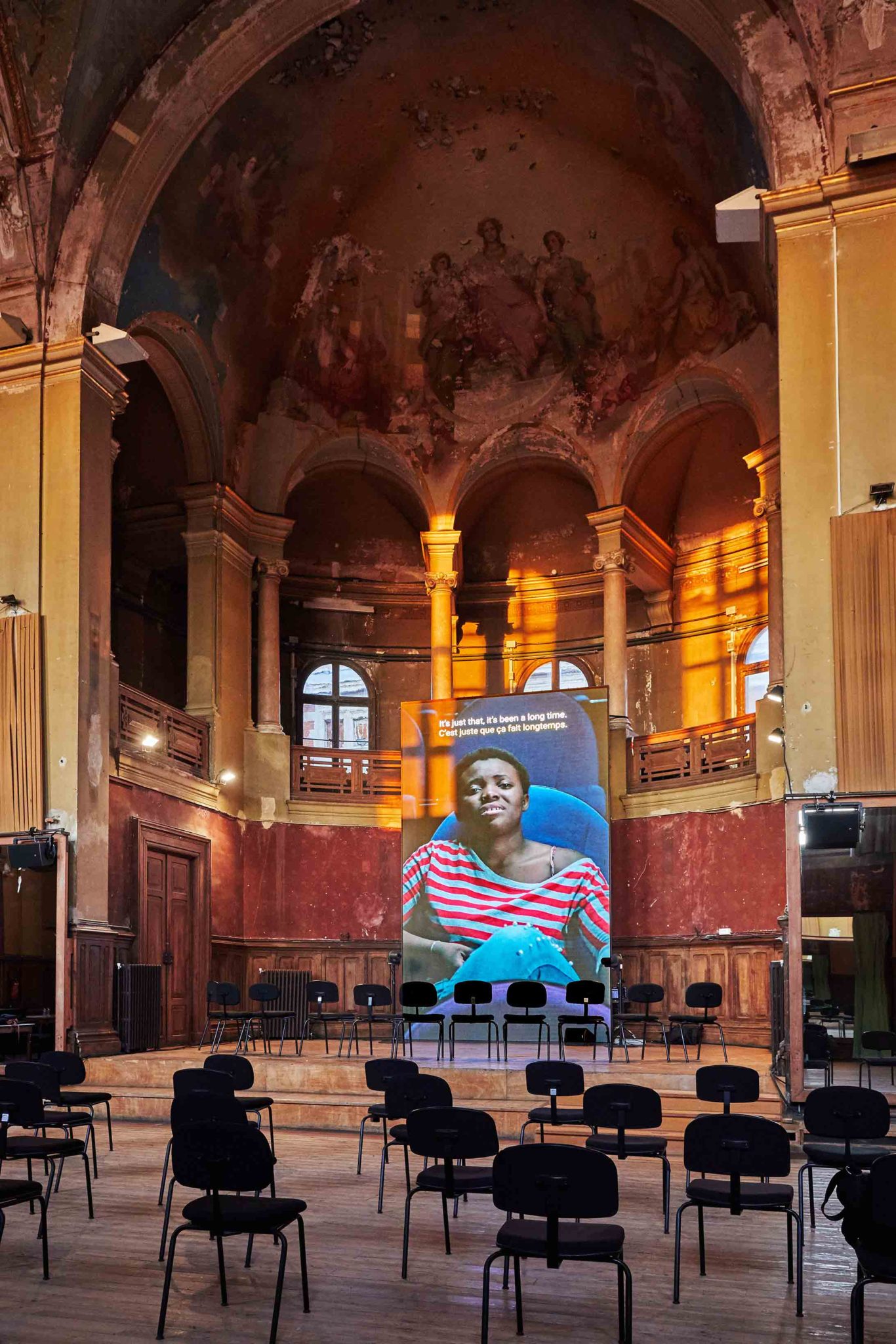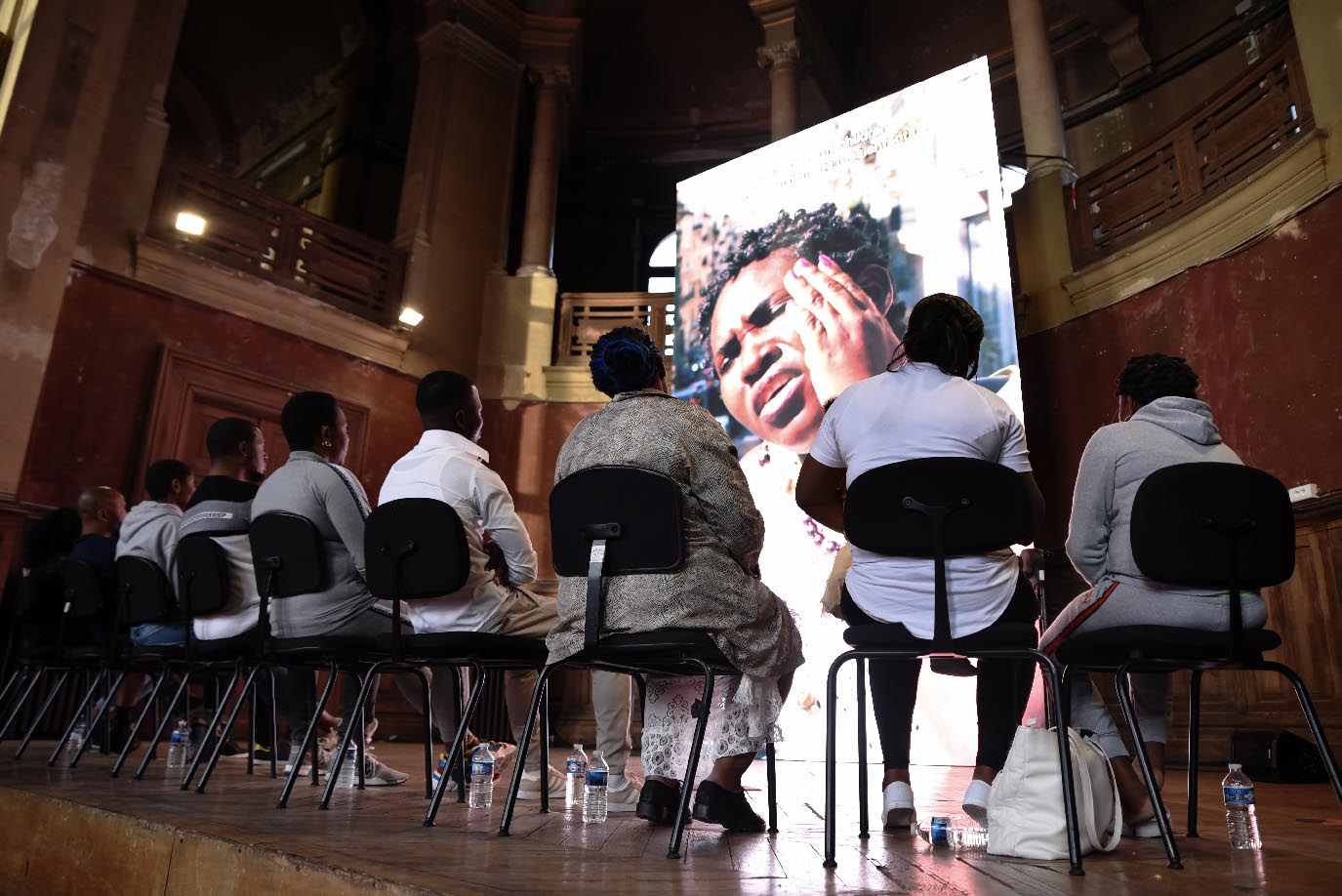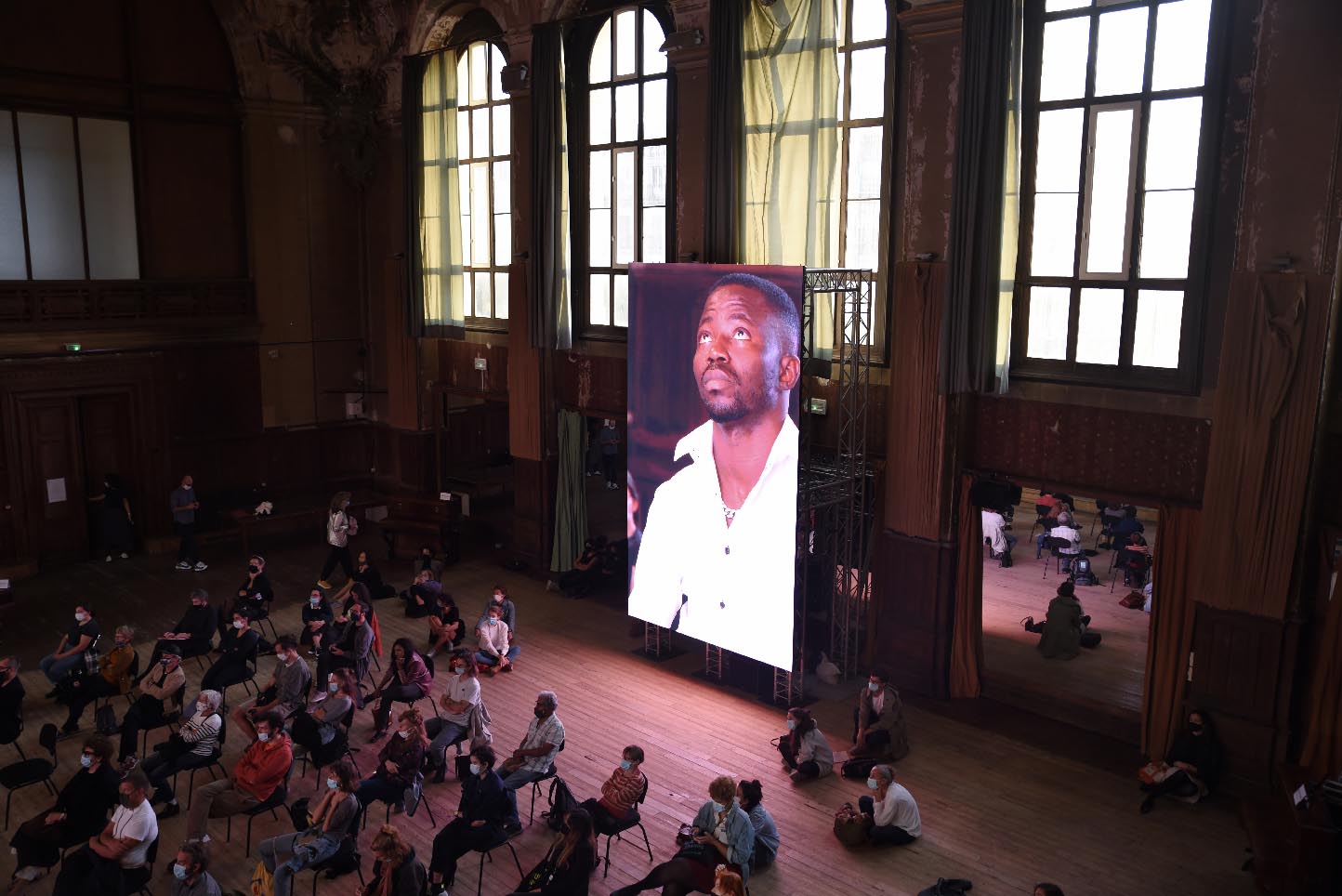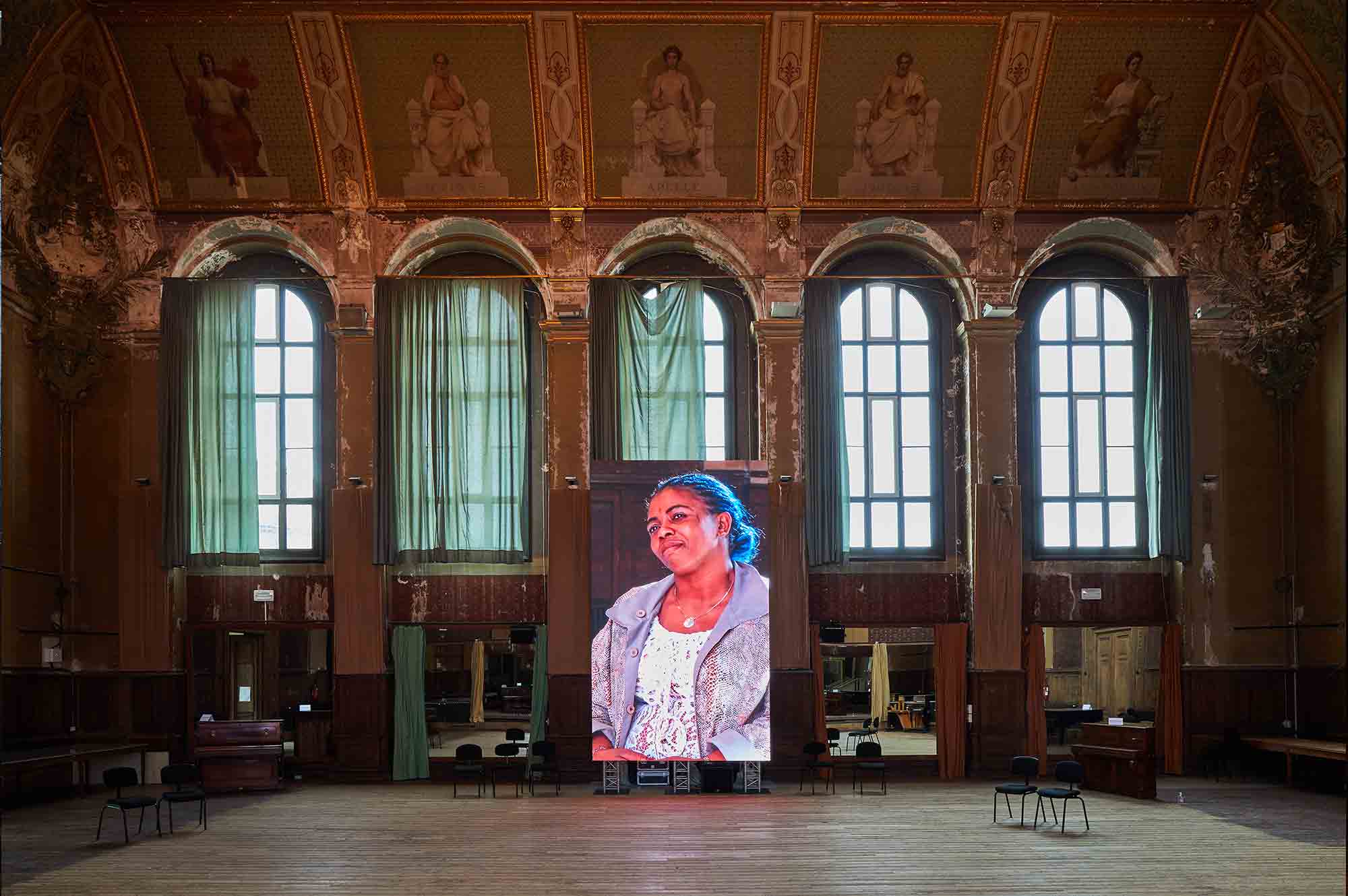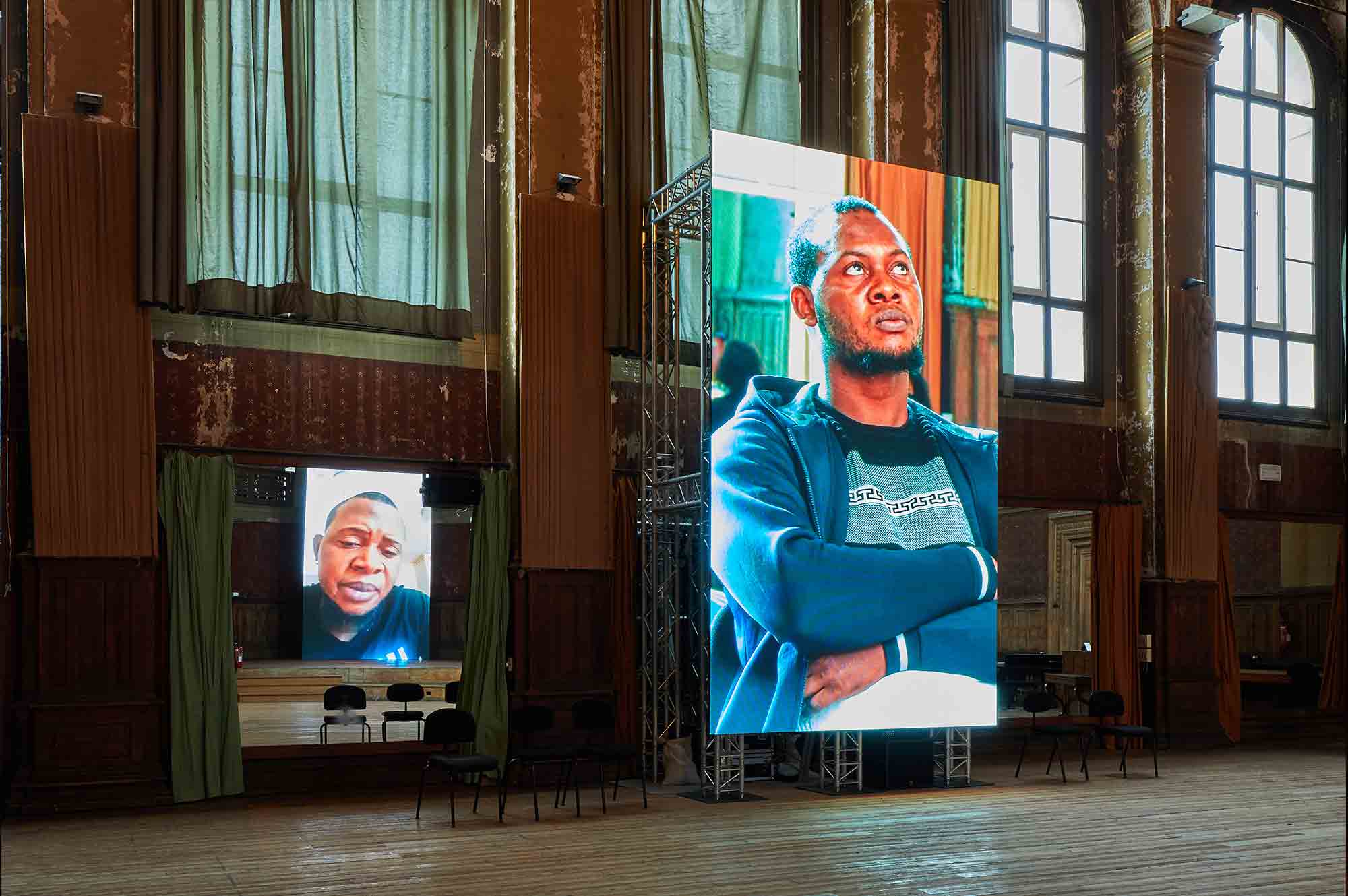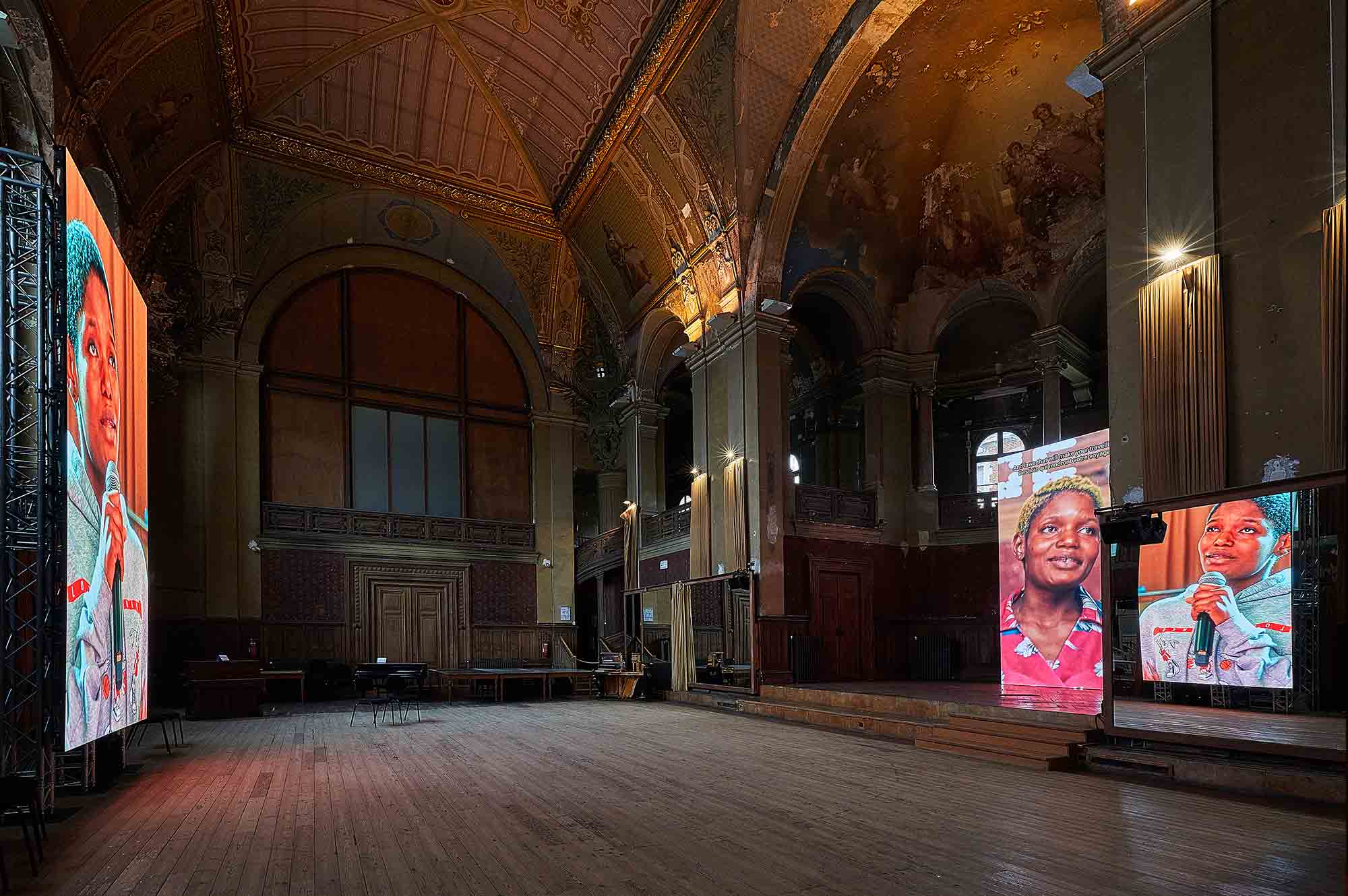Tuan Andrew Nguyen’s (b. 1976, VN) practice explores the power and limits of narrative. His projects are based on extensive research and community engagement, frequently culminating in moving images and objects. Nguyen enacts strategies of political resistance in the form of counter-memory and post-memory, where ghosts and hauntings collide with dominant, often colonial histories. Fact and fiction are held accountable in narratives that imagine encounters spanning times, places and borders.
Tuan Andrew Nguyen, Crimes of Solidarity, 2020
Video 71’
Participants: Blessing Enuagu, Tega Enuagu, Sekou Fofana, Joseph Godwin, Kingsley Okoadion, Sharon Omoreuyi, Marvelous Omoreuyi, Treasure Omorowa, Daniel Omorowa, Blessing Osawaru, Mary Osawaru, Joy Otasowie, Success Otasowie, Dosso Soualiou, Junior, Blessing Yacoubou, Moubarak Yacoubou
Commissioned by Manifesta 13 Marseille and VIA Art Fund
With the support of Ammodo
Courtesy of the artist and James Cohan NY
A ‘crime of solidarity’ is an informal term that human rights advocates use to denounce the criminalisation of assistance given to undocumented migrants in France. In the face of this state prohibition against caregiving and solidarity, Tuan Andrew Nguyen examines how we hear others and tell our own stories. In the process, he shows how memory and voice can be used to resist erasure and disposability.
Squat Saint-Just, a temporary housing shelter created in late 2018 by the volunteers making up ‘Collectif 59 Saint-Just’, provided shelter for up to 300 undocumented migrants at any given time. Although it is a legal requirement to provide housing solutions to asylum seekers, public institutions routinely fail to do so. In June 2020 the inhabitants received a longdreaded eviction notice only days before an unexpected fire broke out and forced a complete evacuation. Soon after, many inhabitants found themselves back on the streets again or living in temporary housing throughout Marseille. Made in collaboration with the former tenants of Squat SaintJust, the project takes the form of a silent film where the missing dialogue is performed live in the exhibition space. Here, each of the actors syncs their voices to their own image onscreen, while the act of remembering and retelling reframes their relationships.
As they perform themselves again and again, their identities fade in and out of focus, shifting between embodiment and disembodiment. Between leaving their country of origin and arriving in Europe, migrants must ‘perform’ their story of fight countless times. This ‘story’ becomes a shape-shifting currency in a series of personal, but mostly administrative exchanges. In these transitional spaces, what does it mean to offer a story or to receive one? Is this space between telling and listening a space of possibility? Can empathy become a form of resistance? Can listening become an act of solidarity?
Tuan Andrew Nguyen*
09.10 - 11.10.2020 The School: The Sonorous, The Audible, and The Silenced
Yalda Afsah*,Mohamed Bourouissa*,Julien Creuzet*,Barbara Wagner and Benjamin de Burca*,Ymane Fakhir*,Tuan Andrew Nguyen*,Reena Spaulings,Mounir Ayache*
09.10 - 29.11.2020










